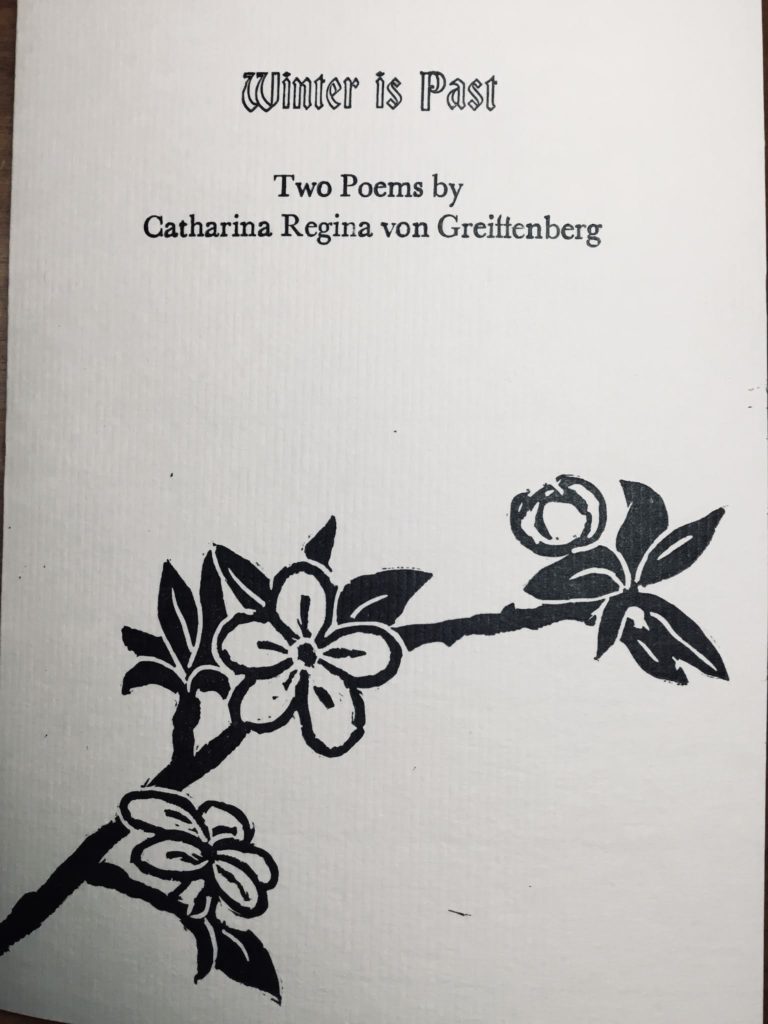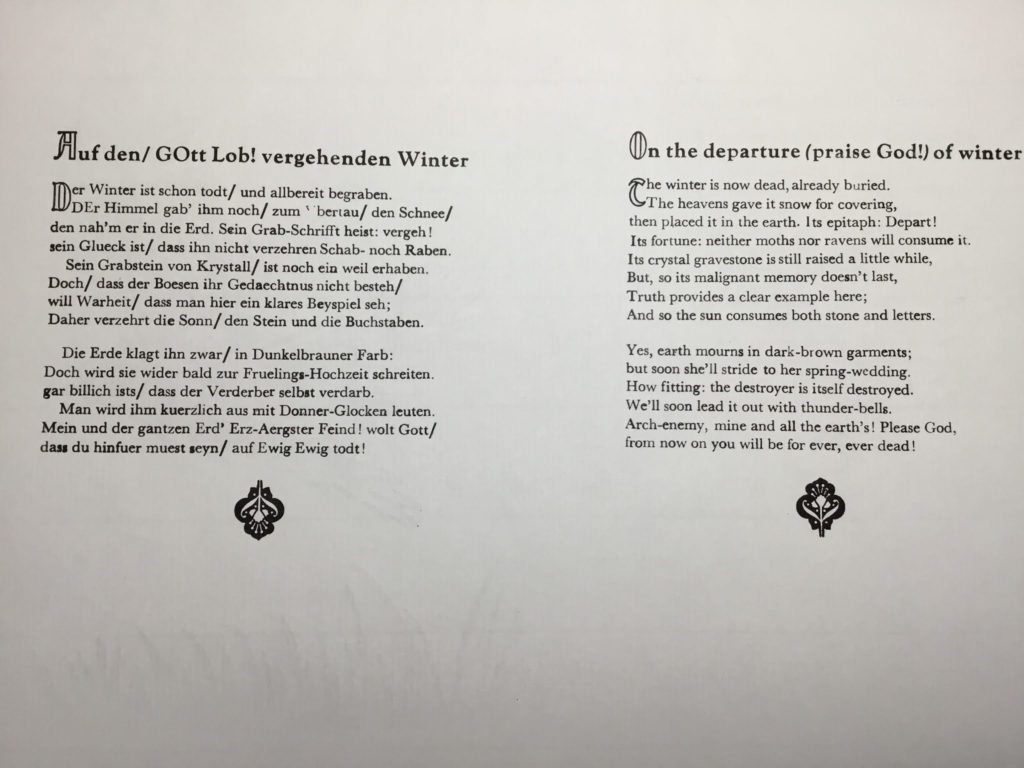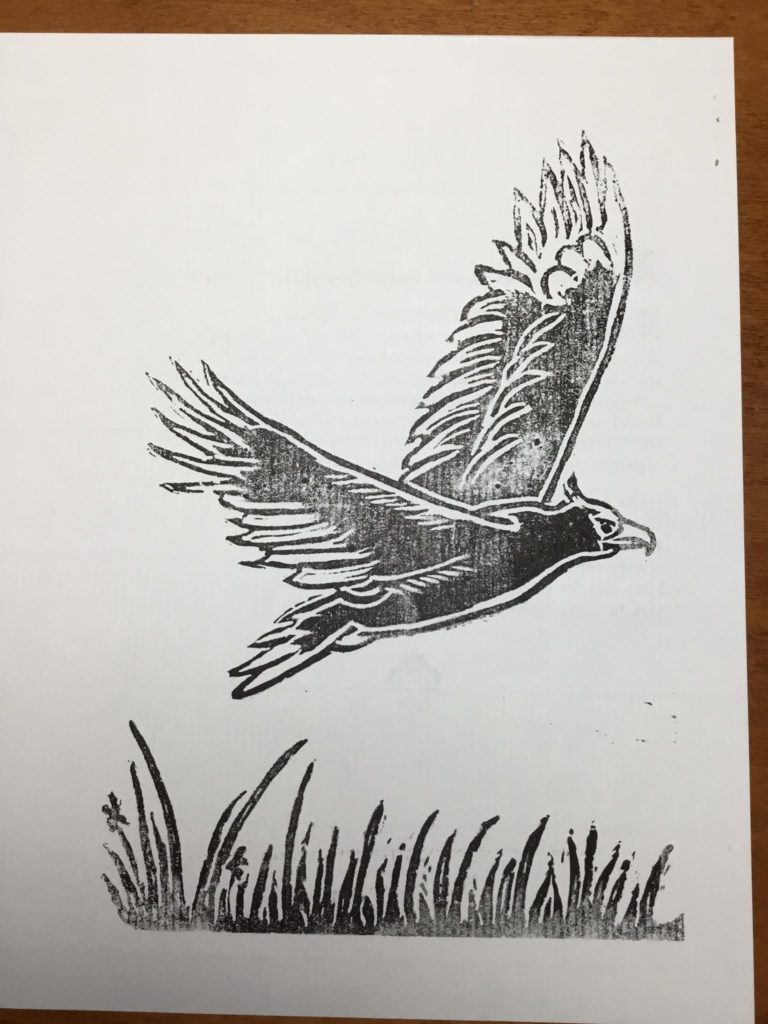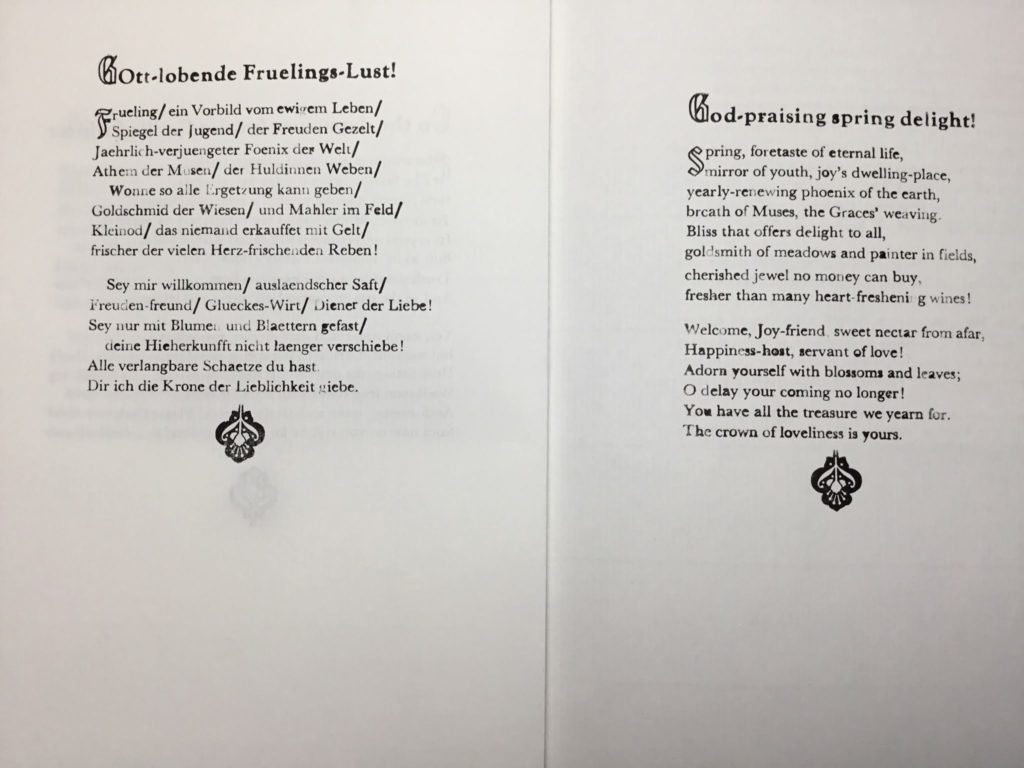Greiffenberg was not fond of winter. According to the subject index of Geistliche Sonnette, Lieder und Gedichte, she wrote seventeen poems about spring, but just two about winter: the first equates winter with adversity, the second celebrates winter’s departure.
That second one caught our attention because of its title: “On the Departure (Praise God!) of Winter” (“Auf den/ Gott Lob! vergehenden Winter”). We already knew Greiffenberg as a woman of intense feeling, and that’s certainly the case here, where she addresses winter as the destroyer, arch-enemy of all the earth. For her–a poet who saw the world through the lens of her faith–the departure of winter was a clear metaphor for Christ’s defeat of death.
When I (Joanne) took a course called The History of the Book at Canadian Mennonite University in the 2020 winter term, I wanted to do something Greiffenberg-related for my creative project. I had already had a taste of letterpress printing and wanted to do more, so I made an illustrated pamphlet with two of Greiffenberg’s sonnets. The sonnet on the departure of winter led nicely into one of the spring sonnets. For each one, I printed the original and our translation on facing pages.
The Lino block illustrations are both spring-related: apple blossoms on the cover, and on the inside a phoenix (yes, I know, it looks like an eagle). The latter is a reference to the spring sonnet, in which spring is called the “yearly-renewing phoenix of the earth.”
I had to make some compromises on the spelling. The sets of type I was working with were meant for English text, and had none of the umlaut vowels (ä, ö, ü) or the “scharfes S” (ß), so I used anglicized spellings for these (ae, oe, ue for the vowels; ss for ß).
If you click on a photo below, you’ll get a larger image with readable text. Both of these sonnets have been published in Wonder-Work: Selected Sonnets of Catharina Regina von Greiffenberg (CMU Press, 2023). Click here to read the winter sonnet in the original German, and here for the spring sonnet.



